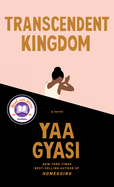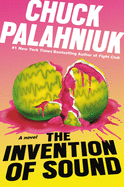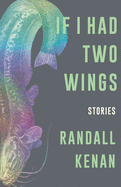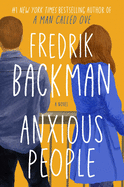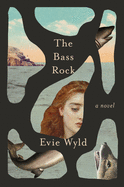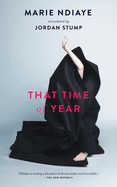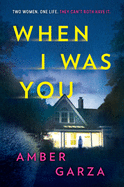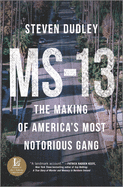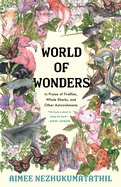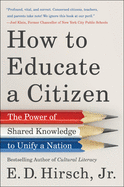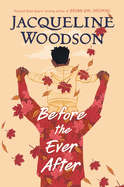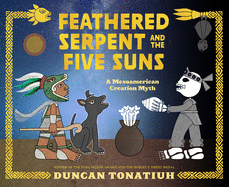 |
| (photo: Amber Green) |
David A. Robertson is the author of many books for young readers including When We Were Alone, which won the 2017 Governor General's Literary Award and was nominated for the TD Canadian Children's Literature Award. Strangers, the first book in his young adult Reckoner trilogy, won the 2018 Michael Van Rooy Award for Genre Fiction (Manitoba Book Awards). A speaker and educator, Robertson is a member of the Norway House Cree Nation and lives in Winnipeg. He spoke with Shelf Awareness about The Barren Grounds (Puffin Canada, September 8, 2020), the first of a middle-grade fantasy series.
The very first thing that jumped out to me about The Barren Grounds is that Morgan likes "how books used to be written." I took note of the stories that were mentioned: The Wizard of Oz, Alice's Adventures in Wonderland.... How did books used to be written? Did you aim to write a book like them?
Some of the writing I've done has been influenced by more classic literature. Even my first adult novel, The Evolution of Alice, was written while I was reading the J.D. Salinger collection Nine Stories and In Our Time by Ernest Hemingway. I feel like stories took more time to be told; there wasn't the rush there can be today. And I loved the language, the approach to character, the description and the imagination. I definitely aimed to write a book like those works you mentioned. Trying to honor those books while, at the same time, writing something that felt completely unique. So, I think there's old-school elements to my book, but there's a sense, too, that you haven't read something like it before.
Your biggest influence for this title was The Lion, the Witch, and the Wardrobe. What made you want to write something akin to an Indigenous Narnia?
Narnia was a huge influence on me. I re-read most of the series before starting in on The Barren Grounds. I wanted to remember how Lewis wrote his books, the world he imagined, the elements I loved and the way in which he approached a subject that was near to his heart while not letting that subject take away from the story itself. I think you could say that The Lion, the Witch, and the Wardrobe was overtly Christian, but you could also say that it was a unique and wonderful story that imagined a world readers had never visited before. I wanted that to be true of my book. And while we have this amazing history of oral storytelling, we have our own classic stories. I wanted to write some of our stories in a classic form--to reach new readers with the subjects that I wanted to approach and hopefully have them influence readers in a positive way. So this book adapts Cree legends, and addresses the foster-care system and land protection, while also telling an engaging and unique fantasy story.
Tell me about building your two young protagonists. What made you choose to place your characters in the foster-care system? Did you always want one to be far removed from her heritage and the other tied more closely to his roots?
So, the first part of that. I've always wanted to tell a story that encourages discussions around the foster-care system. Hopefully, in this story, kids and adults can talk about the foster-care system and how it may impact an Indigenous child who has been removed from their family, their community. There are comparisons to the residential school system, but you also have these foster parents who are well-intentioned. Still, they struggle. So, why do they struggle? How do the kids struggle? What are some of the things they both do to help overcome those struggles? How can that conflict and resolution help us understand reality? The second part is looking at how that removal, acutely, may impact a young Indigenous kid. They've lived their life one way, and now they have to learn to live in another way. You have Morgan, who's been removed for so long that she's forgotten herself: her mother, her community, her way of living, her identity. Because of that, she's angry, confused, lost. Now look at the transformation she undergoes when finding a place that reconnects her with so much of what has been lost. While she still has a long way to go in her journey, the change in her is powerful. It's also this interesting reversal of roles, where Eli is the child, Morgan is like a mentor. Then, on the land, Eli seems wiser, older. Morgan has to learn from him. I liked that.
A part I loved was when Morgan and Eli were invited to sit down with the Council members, all of whom are large, talking animals who speak Cree. Morgan speaks only English and so it is said simply that, "This human... doesn't speak." Would you please expand on this?
Well, there is a world of difference between the English language and Cree (or another Indigenous language, take your pick). To say that Morgan doesn't speak is saying that she can't understand the world as they understand it. She can't translate what she knows into their way of knowing. At least not yet. My dad told me once that, when he had to learn English after only speaking Cree, he had to almost abandon one for the other because they were so different, and he was given no guidance of how to translate knowledge from one worldview to the other. So, she sees the world different from them, and they recognize that. But they also respect each other and make allowances for that disconnect. There's a nice little moment late in the book where she makes her own translation from Cree into English, and it's a small way to show how she is growing as a character.
Is there anything else you'd like to tell readers? Anything you specifically hope children will take from The Barren Grounds?
I hope that they, first and foremost, become engrossed with the world that lives within The Barren Grounds. The world and the characters. And if that happens, a lot of what I've talked about here will just happen organically. They'll learn about Cree legends, they'll learn about the foster-care system, they'll learn about respect for the land. So, that's my main hope. My second is that they question. Always question, because it helps us understand ourselves, each other and the world we've been gifted with. I hope, as well, that they know there is more coming for Morgan, Eli and the creatures in Misewa. I'm very excited to bring all the readers along on this journey. --Siân Gaetano, children's and YA editor, Shelf Awareness
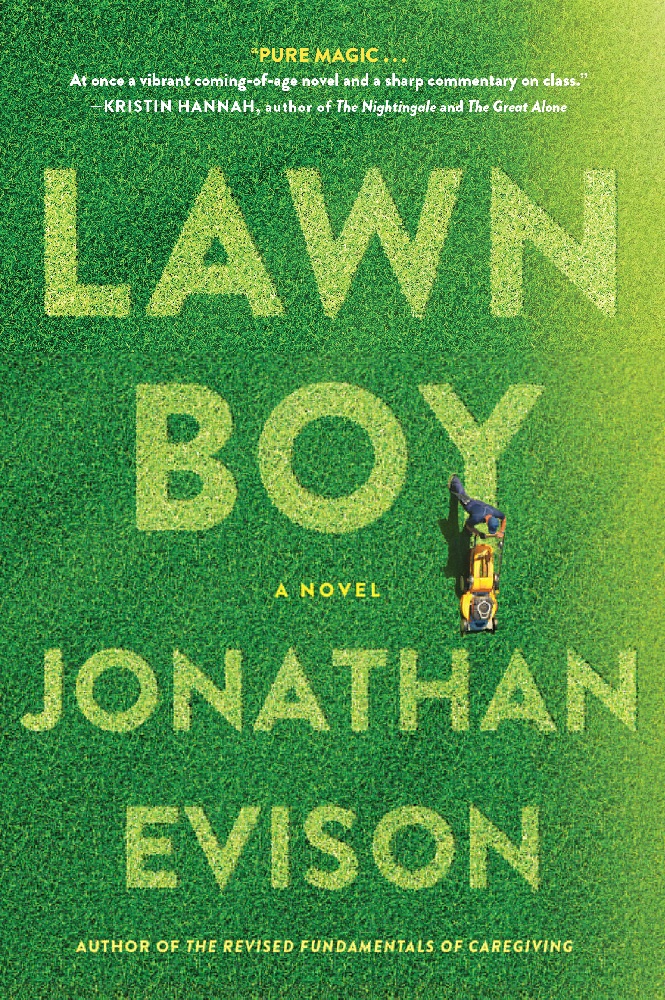 Jonathan Evison's Lawn Boy (Algonquin, $15.95) is just the ticket. Mike Muñoz, raised on the rez by a single mother, has dreams of starting his own lawn service, but is constantly thwarted in business and life. He perseveres--"I had poetry in my heart, goddammit"--and even finds unexpected true love. In Shelf's review, I wrote, "As he learns that no man is an island, he's able to see increasing moments of grace with his 'ragged tribe.' " And when that tribe ends up at Disneyland, the reader is in the happiest place on earth with them.
Jonathan Evison's Lawn Boy (Algonquin, $15.95) is just the ticket. Mike Muñoz, raised on the rez by a single mother, has dreams of starting his own lawn service, but is constantly thwarted in business and life. He perseveres--"I had poetry in my heart, goddammit"--and even finds unexpected true love. In Shelf's review, I wrote, "As he learns that no man is an island, he's able to see increasing moments of grace with his 'ragged tribe.' " And when that tribe ends up at Disneyland, the reader is in the happiest place on earth with them.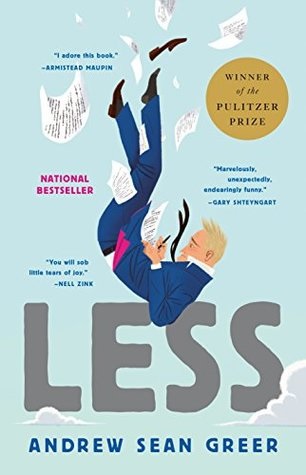 Andrew Sean Greer's Less (Back Bay Books, $15.99), which won the 2017 Pulitzer Prize for fiction, tells the story of Arthur Less, a so-so novelist about to turn 50. His ex-boyfriend is getting married. Arthur needs to escape the city, so he accepts a bunch of invitations to speak at marginal literary events, and weaves through lectures and misunderstandings from France to India, while reminiscing and mourning his lost love. At the end of this endearing and wise book, when Arthur comes home, he wonders why his porch light is on. Cue the happy tears.
Andrew Sean Greer's Less (Back Bay Books, $15.99), which won the 2017 Pulitzer Prize for fiction, tells the story of Arthur Less, a so-so novelist about to turn 50. His ex-boyfriend is getting married. Arthur needs to escape the city, so he accepts a bunch of invitations to speak at marginal literary events, and weaves through lectures and misunderstandings from France to India, while reminiscing and mourning his lost love. At the end of this endearing and wise book, when Arthur comes home, he wonders why his porch light is on. Cue the happy tears.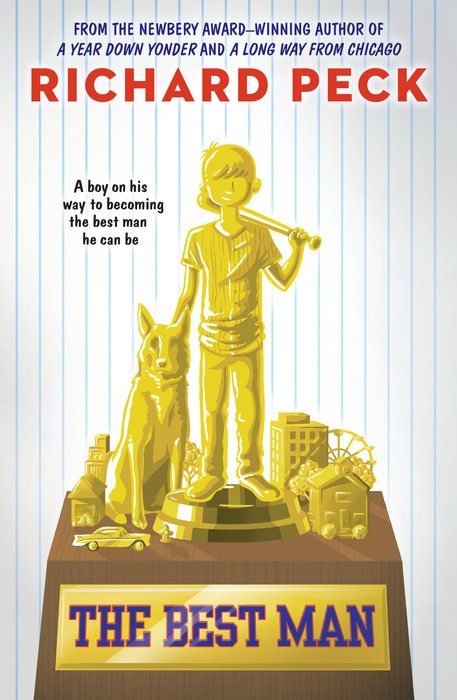 The Best Man (Puffin Books, $8.99) by the late Newbery Medalist Richard Peck may be a middle-grade novel, but the adults I've given it to have loved it, and rightly so. Told in the voice of immensely likable Archer Magill, it begins when he is 6, and ends with him at 12, bookended by two weddings. In between, Archer navigates family and school with a dry narrative. He has four role models--his grandfather, his dad, his uncle and his first male teacher. The ending is sweet, but the payoff is a few pages earlier. More happy tears. --Marilyn Dahl
The Best Man (Puffin Books, $8.99) by the late Newbery Medalist Richard Peck may be a middle-grade novel, but the adults I've given it to have loved it, and rightly so. Told in the voice of immensely likable Archer Magill, it begins when he is 6, and ends with him at 12, bookended by two weddings. In between, Archer navigates family and school with a dry narrative. He has four role models--his grandfather, his dad, his uncle and his first male teacher. The ending is sweet, but the payoff is a few pages earlier. More happy tears. --Marilyn Dahl


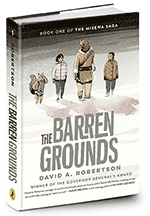


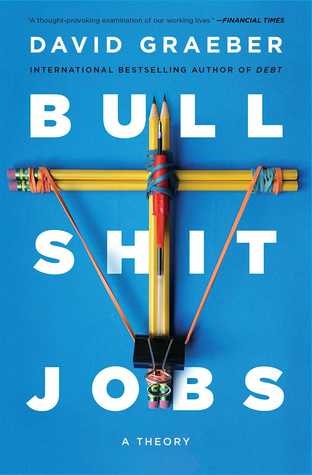 David Graeber, "the radical anthropologist, provocative critic of economic and social inequality and self-proclaimed anarchist who was a coiner of 'We Are the 99 Percent,' the slogan of the Occupy Wall Street movement," died on September 2 at age 59, the
David Graeber, "the radical anthropologist, provocative critic of economic and social inequality and self-proclaimed anarchist who was a coiner of 'We Are the 99 Percent,' the slogan of the Occupy Wall Street movement," died on September 2 at age 59, the 